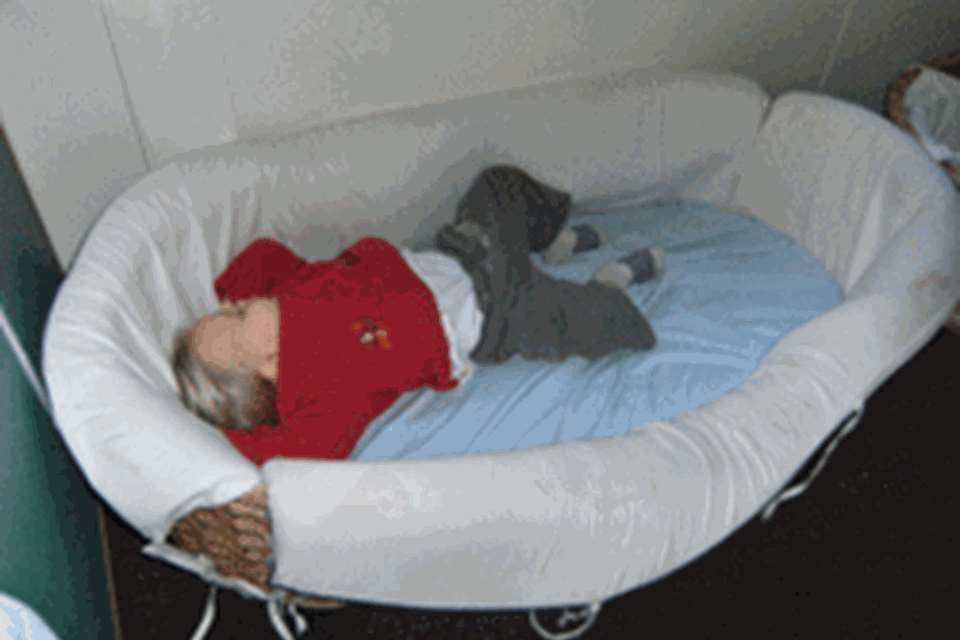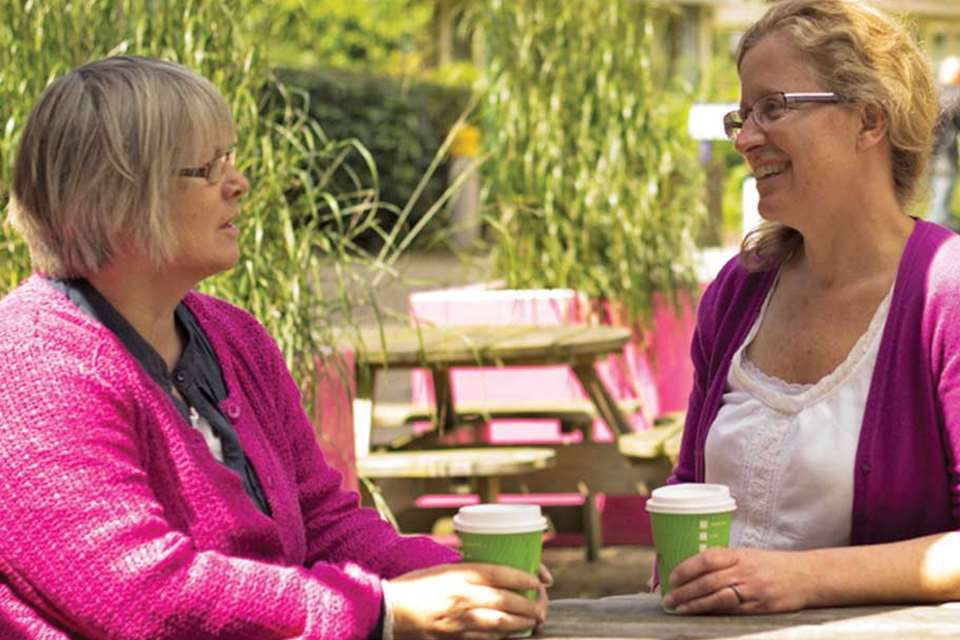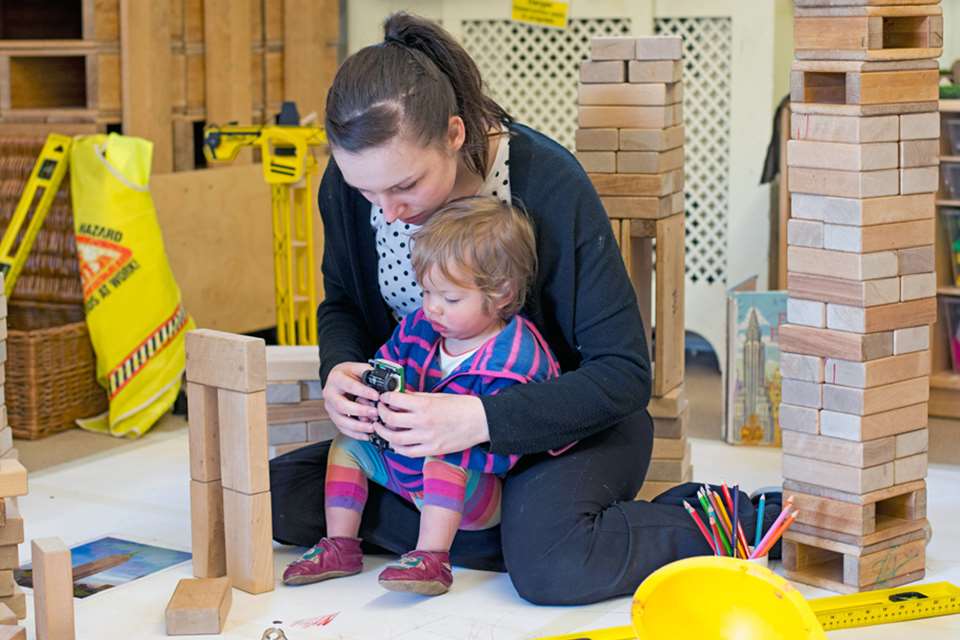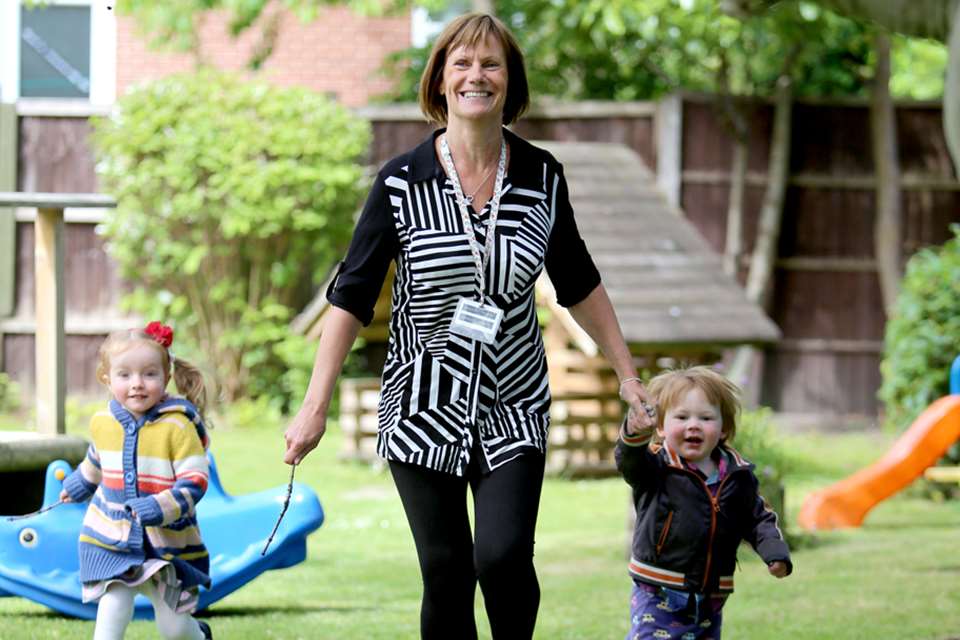Nursery baby room staff: Time to relax
Katy Morton
Monday, June 29, 2015
Working in the baby room can be rewarding, but it can also prove stressful and emotionally challenging. Katy Morton looks at how nurseries can help staff manage the more difficult moments

Many staff who work with babies say how much joy and pleasure they bring, but they also talk about the stresses of the work,' says Peter Elfer, principal lecturer in early childhood studies at the University of Roehampton.
'In some ways, the role of a baby room practitioner can prove more stressful than parenting because of the ratio of one staff member to three babies in a nursery. In a baby room, babies can also set one another off. One baby crying is demanding, but multiply that by four, five or even six babies. A baby's cry can be deeply stressful and evokes physiological anxiety.'
While it is recommended that nurseries provide practitioners with a calm and quiet place away from the babies and the baby room to reduce stress levels, Dr Kathy Goouch, reader at Canterbury Christ Church University, claims this is not regularly available.
She has heard from nursery practitioners that staff rooms frequently double as store cupboards and spaces are cluttered, messy and not conductive to quiet relaxation. Some practitioners, she says, escape to the ladies toilets, as it is their only option for a recovery moment.
Research led by Dr Goouch, along with her colleague Professor Sacha Powell, also found that many baby room practitioners have few opportunities to improve and reflect on their practice and develop professionally. This is particularly significant given that the research, entitled The Baby Room Project, highlighted evidence to suggest that staff with fewer qualifications and less experience are more likely to be placed in a baby room.
MAIN CAUSES OF STRESS
According to Dr Elfer, the biggest source of stress reported by staff is making sure the babies in their care are safe during the day. Another worry is ensuring all the babies get an equal amount of attention.
'A more sensitive baby may demand a bigger share of staff time. Less demanding babies may get overlooked in the pressure to soothe distressed children and stop the distress contagion,' he explains. 'Babies who are quiet may easily be regarded as fine and nicely settled in when in reality they may have given up on seeking scarce attention from overstretched staff.'
Practitioners are often aware of this, says Dr Elfer, but the pressure to attend to the more demanding babies can be intense. He also claims that the inability to settle or soothe a baby can feel like a personal failure or inadequacy.
Another strain on practitioners in the baby room is establishing how close a relationship they should form with a child, with many fearful that they might incite a mother's jealousy or accusations of child abuse.
In her paper 'Do mothers want professional carers to love their babies?' Dr Jools Page, programme director for the MA in Early Childhood Education at the University of Sheffield, reported that the mothers in her study did want practitioners to form loving relationships with their children.
She is now leading the project Developing Professional Love in Early Childhood Settings. Its aim is to investigate practitioners' views of love and to establish the extent to which their fears about possible accusations are undermining their decision making and capacity to make attachments and respond lovingly to an infant's needs - as required of them under the Early Years Foundation Stage.
International evidence suggests that when practitioners are stressed, they can become insensitive and unresponsive to the needs of children, which is likely to affect the adult-child relationship, warns Dr Elfer.
'Even in nurseries committed to attachments between staff and babies, that attachment may be avoided if practitioners feel stressed through overwork or lack of support,' he says. 'For instance, if babies and children are very demanding, staff, even those who are incredibly resilient, experienced or well qualified, may focus on practical tasks such as planning, paperwork or cleaning instead.'
So what are nurseries doing to limit the stress on practitioners in the baby room and overcome the challenges of working with very young children?
CASE STUDIES
Been there ...
Creative Minds Nursery, Deal, Kent
For this 35-place setting, having a senior management team with experience of working in the baby room means it can provide the right support to staff.
'Our senior management team have done the job, so appreciate and understand how emotionally demanding it can be working with very young children,' explains manager Heather Cobb, who has an MA in Early Childhood Education from the University of Sheffield.
'Our senior staff are willing and able to help practitioners through tough situations, such as giving them the confidence to deal with parent requests that do not fit in with the nursery ethos.'
A phone call away
Oaks Nursery, University of Kent, Canterbury
At Oaks Nursery, a 90-place purpose-built setting providing care for 27 babies across two rooms, asking for help is seen as a sign of strength, rather than weakness.
Manager Chris Comper explains, 'We have an informal system where if staff are very stressed or upset they can use the internal telephone in the room to notify a senior member of staff who will provide cover for them to take a break.
'We also have a dedicated staff room, an element I helped design when plans for the setting were being drawn up nearly a year and a half ago - previously, the nursery was based in modular buildings.
'Being based at the university, practitioners can also walk around campus during their lunch hour, which gives them the opportunity to get some physical and mental space away from the setting and the children.'
Empowering staff
Miri Meithrin Nurseries, North Wales
Involving staff in the running of the service means they are better able to deal with any challenges that may arise, according to Mari Roberts, owner of the two Miri Meithrin Nurseries.
Practitioners, including those who work in the baby room, are encouraged to make suggestions about how a room could be improved or which resources to buy to assist children's learning experiences.
Ms Roberts says this approach empowers staff and lets them know they are valued, as well as acknowledging that they are best equipped to make decisions about the environment, where they spend most of their day, and the children.
The nursery owner also organises staff nights out for her team, which she says is very close-knit and supportive of each other, to show they are appreciated, give them something to look forward to and the chance to socialise outside work.
Across the age range
Jenniflowers Childcare, Southfields, west London
At Jenniflowers Childcare, which operates from two sites, practitioners are able to work across the age ranges because a child's key person remains the same throughout their time at the settings if the child attends full time. Owner Jennifer McQuillan says this provides staff with a change of scenery, rather than them caring only for babies, as well as the chance to enhance their skills.
Practitioners work across the 'home nursery', which cares for children aged from six to 15 months, and the pack-away pre-school, for one to four-year-olds. Jenniflowers Childcare also operates an out-of-school club and a weekly stay-and-play session for children with special educational needs and disabilities.
Ms McQuillan claims another advantage of children having one key person is that closer attachments are formed, and staff are better able to provide comfort as they are more familiar with a child, their routine, likes and dislikes.
Regular supervision
Greenfields Children's Centre, Ealing, west London
At this west London children's centre, giving practitioners time to reflect on their practice has helped them deal with the daily challenge of working in the baby room.
'Every six weeks, we hold supervision sessions in which staff are given the chance to reflect on what is going on, discuss the dynamics of the room, and tell us if they have any personal issues,' says head of centre Ellie Larkin, who also has an MA in Early Childhood Education from the University of Sheffield. She believes giving staff space and time to reflect and share helps reduce any concerns and stress they may have.
Career progression
Archway Children's Centre, north London
Plenty of opportunities to progress their careers helps to cut stress and retain staff at the Archway Children's Centre.
Head of centre Nasso Christou explains, 'All our staff are educated to at least degree level, including those who work in the baby room. Many have Early Years Professional Statis and one practitioner is working towards her doctorate. Our team is intelligent and articulate, and understands the developmental needs of the children, which means we achieve better outcomes.
'Practitioners are given plenty of opportunities to develop and grow. Recently, we created an under-threes co-ordinator post for a member of staff looking to progress her career.'
Ms Christou says measures such as this and rotating staff across different age groups every couple of years act as incentives for staff to stay longer at the centre (in the past, a number have left to train as teachers). Staff also benefit from weekly yoga sessions led by a professional, which Ms Christou says helps them maintain good physical and emotional health.
MORE INFORMATION
- 'Do mothers want professional carers to love their babies?' in Journal of Early Childhood Research by Dr Jools Page, www.shef.ac.uk/education/research/groups/crec/love
- 'Managing stress in child care services' in Putting Children First by Sonja Tansey, http://ncac.acecqa.gov.au/educator-resources/ pcf-articles/Managing_stress_Jun08.pdf
- The Baby Room Project by Dr Kathy Goouch and Dr Sacha Powell, Canterbury Christ Church University, http://tactyc.org.uk/pdfs/Reflection-Goouch.pdf.











